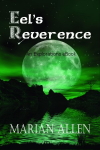This weekend, I attended Canada’s Bloody Words mystery conference for the first time in eleven years. Back in 2000, I made the trek from Vancouver to Toronto, and found myself learning the ins and outs of networking, participation, and book promotion. It was daunting back then. I didn’t know anyone.
Eleven years and three published books later, (and having attended several other conferences) I returned to Bloody Words because it happened to be reasonably close to home in beautiful Victoria BC, and this time I knew many attendees, so how could I resist?
One of the nicest things about the Bloody Words conferences is their size (about 200 at this one) and the casual, let’s-have-fun approach. Coordinators Lou Allin and Kay Stewart did a fantastic job, and there were plenty of highlights: announcement of the Arthur Ellis Award winners, the wonderful and often funny speeches of Michael Slade, William Deverell and Tess Gerritsen, the Victoria CSI workshop—with a real case study—not to mention the many interesting panels.
One of the best things of all was to reacquaint myself with attendees I’d met at other conferences, and to exchange news in the publishing world. Eleven years ago, I recall authors grumbling about their publishers lackluster promotion efforts, and there were some discussions about the best places to do signings. This year, we were recommending the best blogs to one another, and throwing around words like platforms and branding: words rarely uttered by writers a decade ago. Although much of the publishing world is in turmoil and undergoing a huge transition, the opportunities to publish and market one’s work have never been better. It’s certainly better than it was eleven years ago.
My only downside to the conference was the $18.00 I had to spend in the gift shop for Tylenol and deodorant because I forgot to bring both. Unfortunately, it was getting too late in the evening to go traipsing through Victoria seeking cheaper options. On the upside, though, the hotel service was superb!
I’ve been to other conferences over the past decade, but Bloody Words 2011 was definitely one of my favorites. For those of you who might have some trepidation about attending any conference, let me say, that it’s not really about selling books, but about sharing information, especially for those just starting out, participating in panels, volunteering, chatting, and meeting people. Great organization skills from coordinators, as we enjoyed, goes a long way to making a conference successful, but what makes it invaluable is participating in as many ways as possible. If you can do this at your first conference, you won’t go too far wrong.
Since I posted the Arthur Ellis award shortlist a few weeks back, I’d be remiss if I didn’t tell you who won the coveted hangman award. And the winners are:
Best Novel: Louise Penny for Bury Your Dead, (Little, Brown UK)
Best First Novel: Avner Mandleman for The Debba (Other Press)
Best Unhanged Arthur: (an unpublished first crime novel): John Jeneroux for Better Off Dead
Best Short Story: Mary Jane Maffini for So Much in Common (Ellery Queen Mystery Mag.)
Best Non-fiction: Stevie Cameron for On The Farm (Knopf Canada)
Best Juvenile/Young Adult: Alice Kuipers for The Worst Thing She Ever Did (HarperCollins)
Best Crime Writing in French: Jacques Coté for Dans le quartier des agités ((Alire)
THE OPPOSITE OF DARK, http://bit.ly/i983XE, book trailer http://youtu.be/ojgoDKSW_ck
FATAL ENCRYPTION, http://tinyurl.com/ddzsxl
TAXED TO DEATH, http://tinyurl.com/czsy5n


